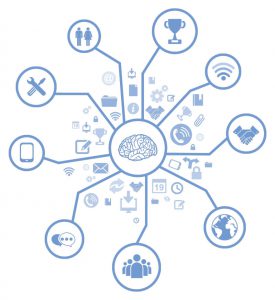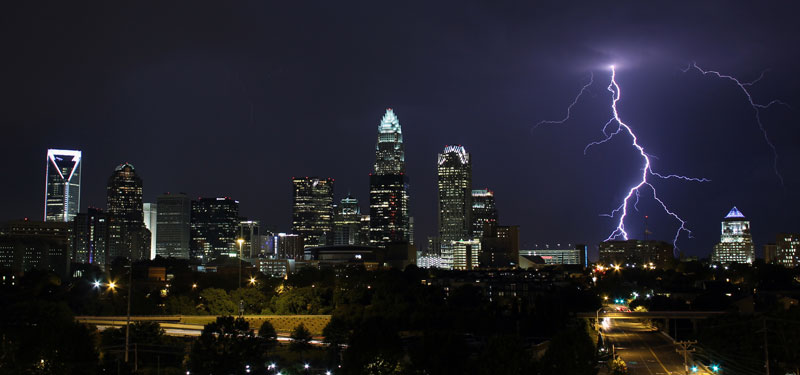‘Best Minds’ Convene on March 20-21 to Imagine the Future
As faster networks transform cities throughout the world, the James L. Knight School of Communication at Queens is convening leaders from five fields on March 20-21 to begin answering questions about the connected future of Charlotte.
The school’s Best Minds conference annually brings together national thought leaders from education, business, technology, cultural production and civic engagement. This year the event provides Charlotte residents with the opportunity to reimagine the shape of the city, discuss, and ask questions.
What does the Charlotte of 2025 look like? How do faster networks reshape the fabric that holds families, neighborhoods, communities, businesses, schools, and cities together? How do organizations make technology relevant to city residents? How does the city ensure digital literacy and inclusion for everyone who wants to participate and contribute?
Charlotte residents can meet and discuss these questions in a reception at 5:30 – 6:30 pm on Friday, March 20, and in a panel discussion at 6:30 – 8 p.m. The event is free and open to the public, and will take place in the Ketner Auditorium of Sykes Learning Center. Queens is located at 1900 Selwyn Avenue in Charlotte.
This year’s conference follows Google’s “fiberhood” movement, after the company’s recent announcement to build a fiber network in Charlotte. The announcement will ultimately place the city’s Internet infrastructure among the fastest in the world.
 Conference leaders include Aaron Deacon, managing director, Kansas City Digital Drive; EJ Elgin, instructional technology facilitator, Project LIFT, Charlotte; John Horrigan, senior researcher, Pew Research Center; Twyla McDermott, corporate information technology manager, City of Charlotte; Amy Hawn Nelson, director of research, Urban Institute, the University of North Carolina at Charlotte; Aaron Smith, senior researcher, Pew Research Center; Erica Swanson, head of Community Impact programs, Google Fiber; and Keva Walton, senior vice president for member engagement, Charlotte Chamber of Commerce. The conference will be moderated by Dr. Eric Freedman, dean of the Knight School of Communication.
Conference leaders include Aaron Deacon, managing director, Kansas City Digital Drive; EJ Elgin, instructional technology facilitator, Project LIFT, Charlotte; John Horrigan, senior researcher, Pew Research Center; Twyla McDermott, corporate information technology manager, City of Charlotte; Amy Hawn Nelson, director of research, Urban Institute, the University of North Carolina at Charlotte; Aaron Smith, senior researcher, Pew Research Center; Erica Swanson, head of Community Impact programs, Google Fiber; and Keva Walton, senior vice president for member engagement, Charlotte Chamber of Commerce. The conference will be moderated by Dr. Eric Freedman, dean of the Knight School of Communication.
What Are Other Cities with Superfast Internet Infrastructure Doing?
AUSTIN, Texas – One year after becoming the second Google Fiber city, Austin now offers stronger and faster Internet services from AT&T, Grande Communications, and Time Warner Cable. Analysts call this increased competition “the Google Fiber effect.”
BUSAN, Korea – City planners are developing deeper access and faster delivery of educational content, including the use of two-way video. They’re also using networks to simplify parking and public transit; to streamline recycling; and to manage emergency response and security monitoring.
KANSAS CITY, Kan. – After becoming the first Google Fiber city in 2011, Kansas City also benefits from the leadership of other technology companies. Sprint launched an entrepreneurial accelerator program in 2014, initially attracting 10 startup companies.
Charlotte skyline photography by Joe Cornelius, visiting assistant professor of media production, Knight School of Communication at Queens.
